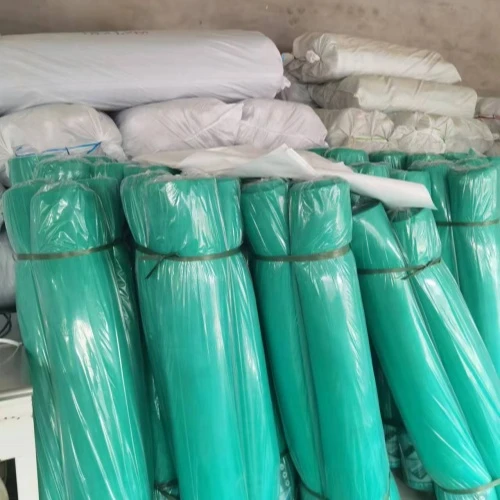-
 Afrikaans
Afrikaans -
 Albanian
Albanian -
 Amharic
Amharic -
 Arabic
Arabic -
 Armenian
Armenian -
 Azerbaijani
Azerbaijani -
 Basque
Basque -
 Belarusian
Belarusian -
 Bengali
Bengali -
 Bosnian
Bosnian -
 Bulgarian
Bulgarian -
 Catalan
Catalan -
 Cebuano
Cebuano -
 China
China -
 Corsican
Corsican -
 Croatian
Croatian -
 Czech
Czech -
 Danish
Danish -
 Dutch
Dutch -
 English
English -
 Esperanto
Esperanto -
 Estonian
Estonian -
 Finnish
Finnish -
 French
French -
 Frisian
Frisian -
 Galician
Galician -
 Georgian
Georgian -
 German
German -
 Greek
Greek -
 Gujarati
Gujarati -
 Haitian Creole
Haitian Creole -
 hausa
hausa -
 hawaiian
hawaiian -
 Hebrew
Hebrew -
 Hindi
Hindi -
 Miao
Miao -
 Hungarian
Hungarian -
 Icelandic
Icelandic -
 igbo
igbo -
 Indonesian
Indonesian -
 irish
irish -
 Italian
Italian -
 Japanese
Japanese -
 Javanese
Javanese -
 Kannada
Kannada -
 kazakh
kazakh -
 Khmer
Khmer -
 Rwandese
Rwandese -
 Korean
Korean -
 Kurdish
Kurdish -
 Kyrgyz
Kyrgyz -
 Lao
Lao -
 Latin
Latin -
 Latvian
Latvian -
 Lithuanian
Lithuanian -
 Luxembourgish
Luxembourgish -
 Macedonian
Macedonian -
 Malgashi
Malgashi -
 Malay
Malay -
 Malayalam
Malayalam -
 Maltese
Maltese -
 Maori
Maori -
 Marathi
Marathi -
 Mongolian
Mongolian -
 Myanmar
Myanmar -
 Nepali
Nepali -
 Norwegian
Norwegian -
 Norwegian
Norwegian -
 Occitan
Occitan -
 Pashto
Pashto -
 Persian
Persian -
 Polish
Polish -
 Portuguese
Portuguese -
 Punjabi
Punjabi -
 Romanian
Romanian -
 Russian
Russian -
 Samoan
Samoan -
 Scottish Gaelic
Scottish Gaelic -
 Serbian
Serbian -
 Sesotho
Sesotho -
 Shona
Shona -
 Sindhi
Sindhi -
 Sinhala
Sinhala -
 Slovak
Slovak -
 Slovenian
Slovenian -
 Somali
Somali -
 Spanish
Spanish -
 Sundanese
Sundanese -
 Swahili
Swahili -
 Swedish
Swedish -
 Tagalog
Tagalog -
 Tajik
Tajik -
 Tamil
Tamil -
 Tatar
Tatar -
 Telugu
Telugu -
 Thai
Thai -
 Turkish
Turkish -
 Turkmen
Turkmen -
 Ukrainian
Ukrainian -
 Urdu
Urdu -
 Uighur
Uighur -
 Uzbek
Uzbek -
 Vietnamese
Vietnamese -
 Welsh
Welsh -
 Bantu
Bantu -
 Yiddish
Yiddish -
 Yoruba
Yoruba -
 Zulu
Zulu
Welding Techniques for Creating Durable Fence Wire Solutions
The Importance of Welding Fence Wire A Comprehensive Guide
Welding fence wire has become an essential component in the construction of various types of enclosures, providing both security and durability. This versatile material is widely used in agricultural settings, residential properties, and industrial applications. Understanding the benefits, methods, and considerations surrounding welding fence wire is crucial for anyone looking to utilize it effectively.
What is Welding Fence Wire?
Welding fence wire is made from high-quality steel, typically galvanized for enhanced resistance to rust and corrosion. The welding process involves fusing wire strands together to create a robust mesh structure that can withstand significant force. This type of fencing is available in various sizes and strengths, allowing for flexibility depending on the specific application.
Benefits of Using Welding Fence Wire
1. Strength and Durability One of the most significant advantages of welding fence wire is its strength. The welded wire construction creates a cohesive barrier that can resist bending, sagging, or breaking, making it ideal for high-stress environments such as livestock pens or industrial perimeters.
2. Enhanced Security The rigid structure of welded wire fencing makes it more secure compared to traditional woven fencing. This security can deter intruders and keep livestock safe from predators, ensuring peace of mind for property owners.
3. Low Maintenance Welded wire fences require minimal upkeep, especially when galvanized. The galvanization process protects the wire from the elements, preventing rust and ensuring longevity. This low maintenance characteristic is a significant advantage for both residential and agricultural applications.
4. Customizability Welding fence wire can be customized to meet specific needs. It can be cut to size, shaped, and even coated with various materials for added protection against corrosion. This level of customization allows users to tailor their fencing solutions to fit unique landscapes and security requirements.
welding fence wire

5. Versatile Applications Welding fence wire is not limited to a single application. It can be utilized in agricultural settings to contain livestock, in residential areas for garden fencing, or in commercial properties for perimeter protection. The versatility of this fencing solution makes it a popular choice across different sectors.
Installation Considerations
When installing welding fence wire, several factors should be considered to ensure optimal performance
- Proper Planning Take the time to plan the layout of the fencing. Measure the area accurately and consider factors like the type of soil and terrain, which can affect installation.
- Quality Materials Invest in high-quality welding fence wire to ensure durability. Poor quality materials may lead to frequent replacements and increased costs over time.
- Installation Techniques Utilize appropriate installation techniques to enhance the stability and longevity of the fence. This may include the use of concrete footings or tensioning systems to keep the wire taut.
- Regulations and Permits Be aware of local regulations regarding fencing. Some areas may have restrictions on fence height, materials, or property boundaries, so it’s essential to check before installing.
Conclusion
Welding fence wire is a robust and flexible solution for various fencing needs. Its strength, durability, and low maintenance make it an attractive option for securing properties and containing livestock. By understanding the benefits and considerations of welded wire fencing, property owners can make informed decisions that protect their assets effectively. Whether for residential, agricultural, or industrial applications, welding fence wire is an investment that pays off in security and longevity.
-
Shipping Plastic Bags for Every NeedNewsJul.24,2025
-
Safety Netting: Your Shield in ConstructionNewsJul.24,2025
-
Plastic Mesh Netting for Everyday UseNewsJul.24,2025
-
Nylon Netting for Every UseNewsJul.24,2025
-
Mesh Breeder Box for Fish TanksNewsJul.24,2025
-
Expanded Steel Mesh Offers Durable VersatilityNewsJul.24,2025











